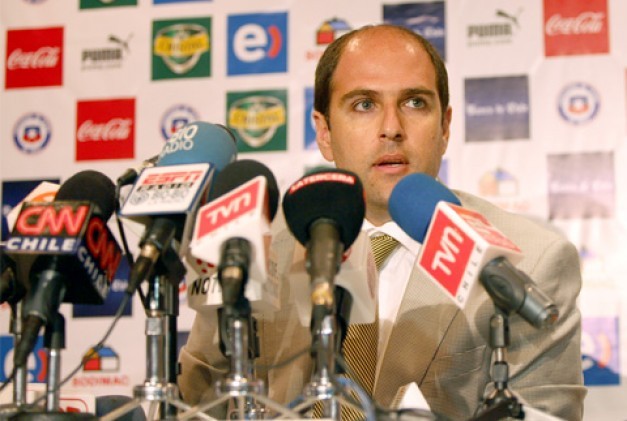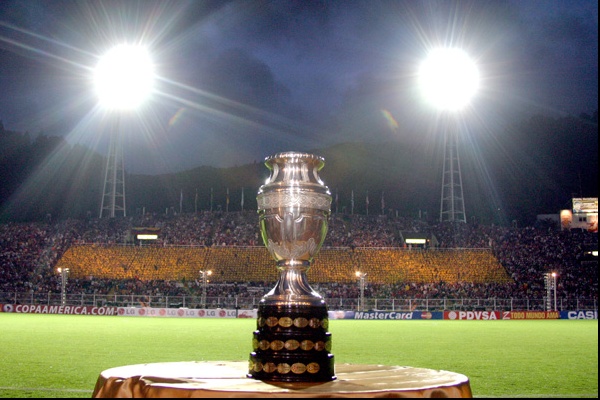By David Gold
March 24 – Chilean Football Association (ANFP) President Sergio Jadue has announced that they have agreed with their Brazilian counterparts to take over as hosts of the 2015 Copa América.
The tournament was set for Brazil, but the Brazilian Football Confederation (CBF) has revealed that they have given up hosting rights due to the number of major events taking place there in the years to come, and would instead stage the competition in 2019.
The agreement was initially reached last week between Jadue and José Maria Marin, who replaced Ricardo Teixeira as the CBF President earlier this month, in São Paulo.
Brazil last hosted the Copa América in 1989, whilst Chile staged it last in 1991, and the decision now only needs approval from the South American Confederation, CONMEBOL.
A press conference today, held by Jadue (pictured) alongside national team coach Claudio Borghi, confirmed the announcement.

“With excitement and joy, I’m proud to announce that Chile will receive the 44th Copa América,” said Jadue.
“This is a challenge and a window to the world.
“It is an opportunity to grow and develop, it may be distant, but not for the challenges we have.
“I welcome the opportunity given to us and say that Chile will be good at its job, and organise a good Copa América.”
In 2014 Brazil is staging the World Cup, and then the Olympic and Paralympic Games will come to Rio de Janeiro in 2016.
On top of that the Confederations Cup will be played in Brazil in 2013, and the country has been struggling to both construct and renovate stadia in time for the tournaments.
Brazil has also faced problems developing the transport infrastructure necessary to cope with the demand expected, with airport capacity a particular concern.
A statement on the CBF website read: “The president of the CBF explained…that it would not make sense [to have the] Copa América in Brazil in the midst of so many great events that the country will host.”
Brazil also cited the congested nature of the football calendar in a country where the football literally never stops; either the national championship is taking place in the latter half of the year, or the state championships during the first half.
Similarly, the Copa Libertadores and Copa Sudaméricana, the South American equivalents of the Champions League and Europa League, do not run simultaneously, with the Libertadores taking place in the first half of the year and the Sudaméricana in the second.
“The argument prevailed by President Jose Maria Marin that the 2015 Copa América in Brazil would cause an interference in the calendar, and mainly affect the Brazilian clubs.
“And exactly a year when its most important competition, the Brasileirão, is expected to be one of the most exciting in its history.”
Chile are also hosting the under-17 World Cup in 2015, meaning they will stage two major competitions in the same year.
Jadue said the Copa América would take place in June, with the under-17 World Cup between October and November.
Oglobo also suggested that the agreement to hand the Copa América to Chile played a key role in the appointment this week of Marco Polo Del Nero to the FIFA executive committee in place of the departed Teixeira.
They cite CONMEBOL sources as having suggested that Del Nero was able to beat Uruguayan Eugenio Figueredo to take up the position thanks in part to the support of Chile.
Contact the writer of this story at zib.l1745002094labto1745002094ofdlr1745002094owedi1745002094sni@d1745002094log.d1745002094ivad1745002094

